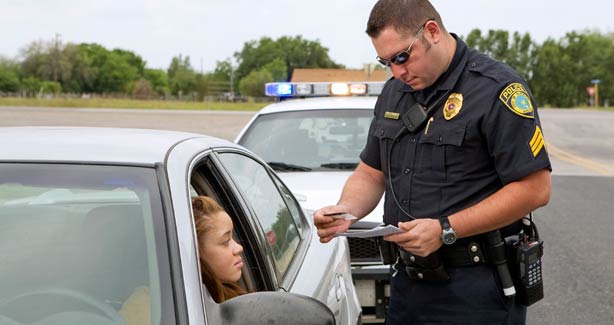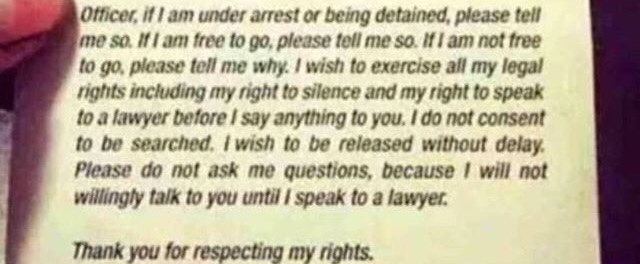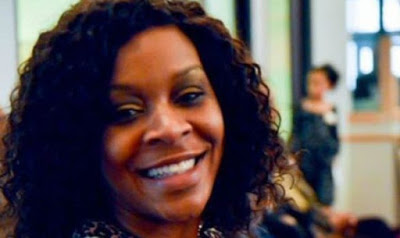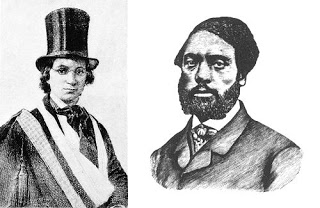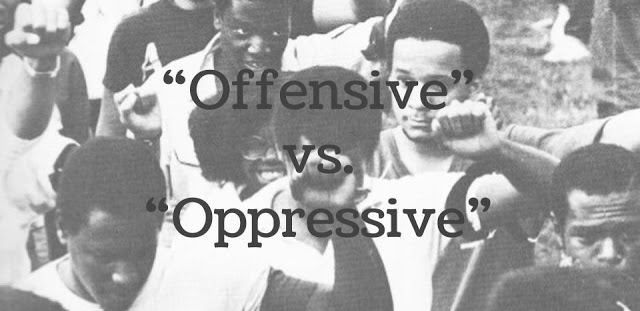by Jaylin Paschal
As we all know, black women are not able to express normal, human emotions or opinions without harsh backlash. Although black women are constantly provoked, attacked, and taken advantage of-probably more than any other group of people-they are also constantly silenced and shrugged off. And although we, black women, are consistently lusted over, and our features and characteristics are consistently mimicked as "high fashion," we find ourselves repeatedly being told that we are undesirable and unworthy of attention, affection, or love. Black women are expected to be silent in all situations, even those that are offensive and even those that have been escalated by the other party. Our emotions, opinions, and asserts are almost always viewed as aggressive-regardless of whether or not they were formed in our own defense. And when we, black women, refuse to respond to this abuse with the proper hanging of the head and "yes, sir" or "yes, ma'am," we are deemed as attitudinal, bitter, and angry. No one takes the time to look at
why we are upset, or to examine the conditions and cultures with which we are frustrated. They just lock their doors, and shake their heads at our "aggressiveness" while watching us out their windows. There is no attempt to understand our frustration, and there is no "freedom of speech" defense working towards our benefit as we try to advocate for ourselves. Black women are denied the empathy and understanding that so many others are granted, and take for granted. Our responses are not recognized as normal human reactions, because that would require the acknowledgement of our humanity. Instead we are pigeon-holed as the "wild" and "ghetto" beings who can be found stomping around mad at the world. The world that continuously belittles and rejects us.
I can't tell you how many times I've gotten "omg your
attitude," or, more often "you're so
angry lol" from (white) coworkers because I was not allowing management or customers take advantage of me. Whereas other (white) employees were called "strong" or "smart" for literally regurgitating what I had just said. As professor Marc Lamont Hill explained during a
CNN interview, black women are often called out for having an attitude problem when, in fact, they just have a bit of dignity. And while that dignity is praised and revered when demonstrated by others, it is frowned upon and attributed to bitterness when exuded by us.
And there is no more perfect example of this than the tragedy involving Sandra Bland and a police officer that has gained nationwide attention.
Bland, who was apparently being followed by the officer, switched lanes after he pulled an erratic U-turn and began to accelerate behind her, in order to allow him to pass. (Because who wants a crazy cop trailing them, right?) Bland was then pulled over for failure to signal that lane change. (
For failure to signal a lane change. How many of us would be stopped if that was regularly enforced?)
The encounter escalated quickly, although Bland did absolutely nothing illegal during the interaction. It almost seems as if the officer was picking on her, when asking her if something was wrong or if she-predictable-
had an attitude. She responded honestly, explaining that she was irritated (as we all are when pulled over) but also explaining that she knew the officer had to do his job and give her the ticket. Being irritated with police officers and expressing that irritation is not illegal, as Hill also pointed out in his
CNN appearance: "Cops act as if you're not completely kowtowing and being differential towards them, then somehow you're violating a law. [...] We have the right to be irritated." And we also have the right to express that irritation honestly. Honesty is not illegal. It's actually one of those traits associated with dignity.
Many will argue that Bland was then uncooperative because she did not put out her cigarette when she was asked to. As black women we are, again, expected to respond to everything in "yes, sir's," so Sandra's refusal was insulting to the officer. But, that's not illegal. In fact, there is no Texas law against smoking a cigarette in your car, therefore the officer had no right to ask her to put it out in the first place. Bland stated that she didn't have to, and she was absolutely right. Asking her to get out of her car for refusal to put out her cigarette was improper, and yet another example of the officer's misconduct. Knowing your rights and reminding others of them isn't illegal. It's an example of having some governance over yourself. It's an example of dignity.
Others argue with the "combative" monologue, mentioning Bland's refusal to talk to the cop. She told him that she wasn't going to speak to him unless it was to identify herself. Which is also correct under the law. Bland was not at all being combative. She was, in fact, 100% correct and totally cooperative. She was simply cooperating in a
lawful manner that involved refusing to talk to a man who obviously had little to no respect for her. Which was, again, an example of dignity.
When asked to get out of her car, she asked repeatedly why she was being arrested. To which the cop responded "for resisting arrest." That makes no sense. You have to have a reason to be arrested to then resist arrest. What he meant by "resisting arrest" was "daring to be dignified in the presence of a white man with a badge."
Bland should have never been arrested in the first place, and yet she has died in a jail cell. Not because she didn't signal a lane change in a moment of probable confusion and anxiety. Not because she was "resisting arrest," when the original reason for arrest was nonexistent. But ultimately because she displayed humanity in an unapologetic and dignified manner. She admitted to irritation, exercised her rights, and behaved as any of us would have. Apparently a black woman isn't allowed to do that, and if she does, whatever happens to her is her own fault.
Or at least that's ex-policeman Harry Houck's perspective, as he claimed on
CNN that Sandra Bland is dead "because she was arrogant." However, if that was the case, the cop would have been dead as soon as he shouted "I will light you up" at Bland when she refused to comply to an unlawful request.
Sandra Bland is not dead because she was arrogant or because she taunted the cop with the classic "angry black woman" rhetoric. Mainly because she was not an angry black woman. She was a black woman, who was angry. And rightfully so. And understandably so; humanly so. The interaction was a raw, uncut example of our own humanity and behaviors and emotion. She was dignified, and she did what I would do. And probably, what you would do. And, more importantly, she did so
legally. The truth of the matter is, as Senior Editor of
The New Republic Jamil Smith tweeted, "Sandra Bland did nothing unlawful in that video. Attitude and disgust with her own mistreatment was treated like a criminal offense." And the "attitudes" of black women are often criminalized, as we are denied these very human responses. As we are denied humanity. As we are denied dignity.
#SandraBland #SayHerName
Jaylin Paschal is editor of
INSIGHT Magazine, editor-in-chief of her high school newspaper,
Surge, and can be found ranting and rambling on her personal blog
Creative Liberation. You can contact her directly at
paschal.jay.jp@gmail.com.
